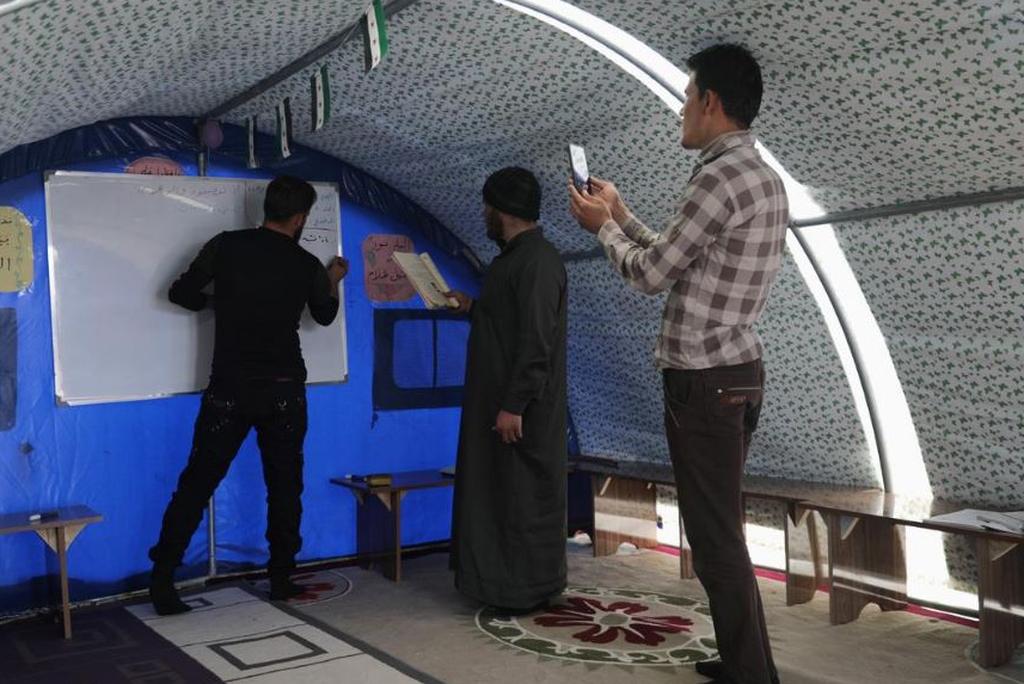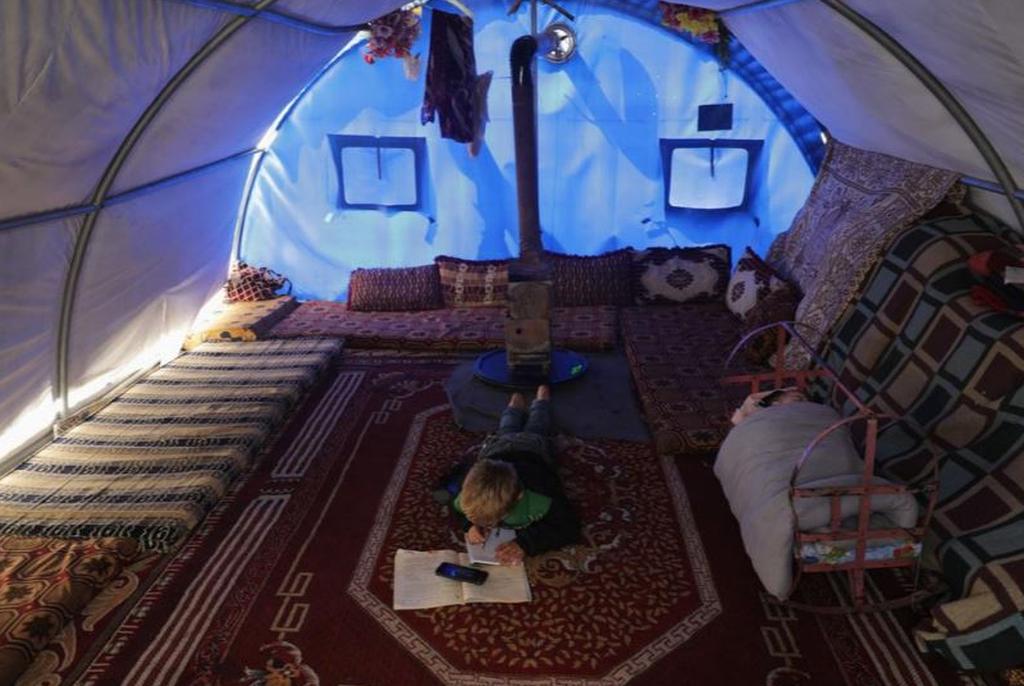Getting your Trinity Audio player ready...
After bombs forced him and his students from their homes, Ahmed Hadaja began teaching in a tent in northwest Syria. And now that the threat of coronavirus has shut even his tented school, he has found a way to carry on.
“We’re urging parents to help their kids study well in their own tents, to do the homework and then message it so that we can correct,” Hadaja, a 21-year-old medic and volunteer Arabic teacher, told Reuters. In the sprawling Atmeh camp near the Turkish border, he sends video lessons online via Whatsapp.
2 View gallery


Ahmed Hadaja records a video lesson for students after their tented school in Atmeh camp was shut due to the threat of coronavirus
(Photo: Reuters)
Doctors fear the worst if the coronavirus hits Syria’s northwest, the last big rebel bastion, where hospitals lie in ruins and camps overflow with people devastated by nine years of war. Test kits arrived this week with no confirmed cases yet.
As the virus forces the world’s big cities into lockdown, tens of millions of people face grave risks in refugee camps and makeshift settlements, from Syria to Bangladesh. Clean water is often scarce, illnesses are rife and social distancing is nearly impossible.
When local authorities closed schools and mosques in northwest Syria in recent weeks, Hadaja shifted to digital learning, trying to fill the education gap for his students who had already lost much to the conflict.
An army offensive that uprooted a million people in the northwest in recent months had upended their lives, and he hoped to retain some sense of normalcy for the children living in tents without enough running water, let alone laptops.
2 View gallery


Mahmoud Abdel Hadi, 8, does his homework remotely in Atmeh camp after his tented school was shut due to the coronavirus threat
(Photo: Reuters)
Along with five other young teachers, he created a Whatsapp group on the messaging app for each class from the first to the fourth grade. They send brief video lessons and homework to the phones of the parents.
“We shut the teaching tent to prevent gatherings... We fear an outbreak,” he added. “But here, even if the schools shut, the tents are close to each other and you can’t really isolate well. You tell people to stay home, but what homes?”

